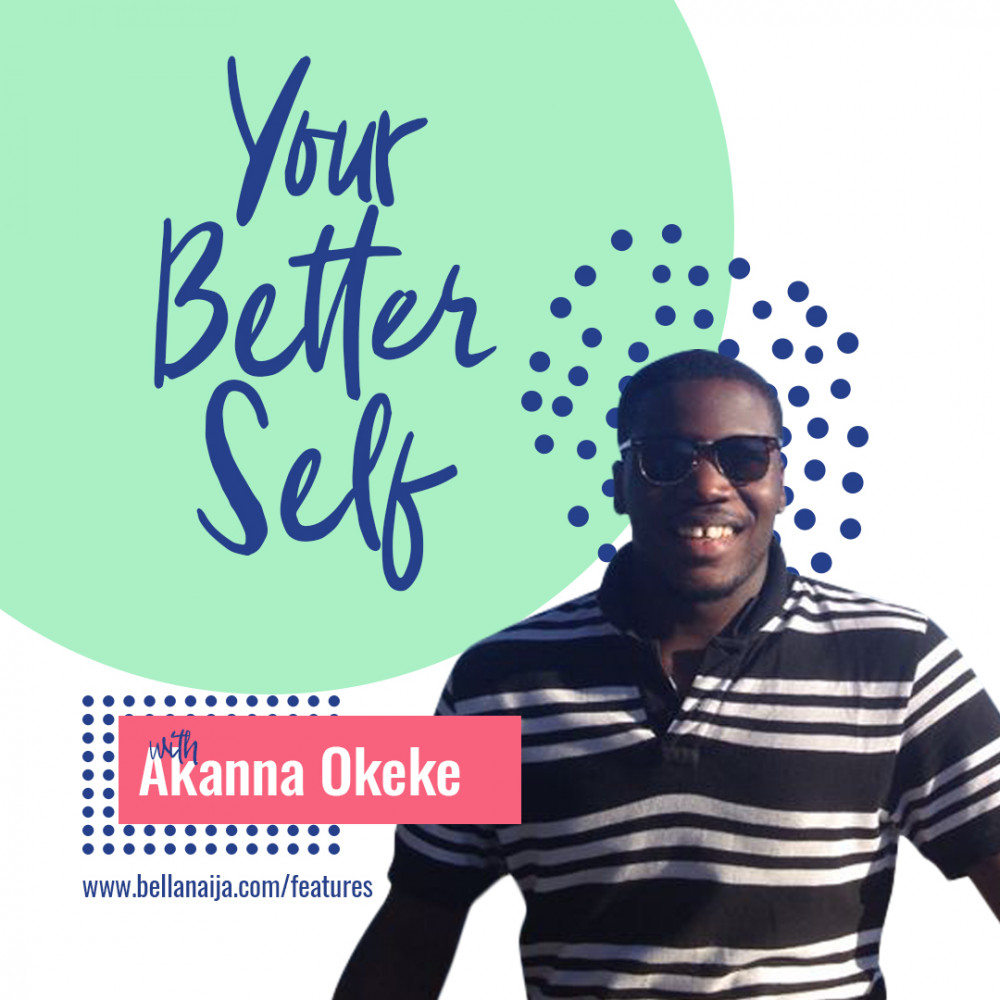Features
Your Better Self with Akanna: The Biggest Gap in Life
You must first be true to yourself and acknowledge that your emotions often get the best of you, then seek to understand how.
“Do what you must do, when you must do it.”
If you were to ask some guru what the secret to success in life is, and his response to you was this quote above, I bet you’d be pretty satisfied with that answer, nodding your head in agreement and, at the same time, asking yourself why you had never thought of it like that.
It sounds simple, doesn’t it? It sounds like something everyone would know. Why, then, isn’t everyone successful? I’ll tell you why: because the biggest gap in life is that between ‘knowing’ and ‘doing.’
We know a lot of things. These days we’re in the information age, with Google at our fingertips. We can search for any sort of information and, guess what, find it in an instant. The right food to eat, workout videos to follow, personal development quotes that we make into cute display pictures, life hacks, tips and tricks.
But why don’t we just do them? Because of four main factors. The gap between knowing and doing is typically caused by four main things.
First, to understand this, I want you to picture a horse and its rider. Imagine you were a child seeing that picture for the first time. What would you think? You’d probably think, in your puerile, naive mind, that the big horse was taking the little man on top of it where he didn’t want to go. The horse was controlling the man against his will. Not until you grow up a little do you realise that the reverse is actually the case. The ‘little’ man does, in fact, control the ‘big’ horse, making it go where the man wants to go.
Not always is this the case, obviously. In the rare occasion that a horse goes against the will of its rider, it’s usually an untamed wild horse that hasn’t been ‘broken’ yet. The rider then has to go through a lot of work breaking the horse, training it to be ridden, reigning in its excesses and keeping it under control.
Now, I need your now-mature mind to picture something else: You are both the rider and the horse. I know, mind-blowing.
The horse represents your base-self. That part of you that just wants to do whatever it feels like. The part that wants to down a tub of ice cream, that wants to spend money recklessly, that wants to keep on snoozing that alarm to the point of calling in sick, instead of getting out of bed and readying yourself for work. It is the wild, untamed, unbroken horse that wants to rebel and carry the rider to any destination apart from the one he wishes the horse to go. It is your feelings and your emotions, and it is usually what is within that gap between knowing what is right to do and doing it.
The rider, on the other hand, is your higher-self. Your intellect. The part of you that knows what you ought to do, when you ought to do it, and tries hard to bring your entire body to cooperate with that plan. Just like the rider, it knows exactly where it wants to go, and seeks to go there too. But, often times, your feelings and emotions get in the way. They act up, neighing and kicking their hoofs in the air before taking you, the rider, where you do not wish to go.
I hope this all makes sense.
We all want to close that gap, don’t we? We all want to be successful. We all wish our feelings and our emotions would just come to full compliance with our intellect. We all wish we did what we knew we should be doing exactly when we should be doing them. And what this means is that we should all want to tame our horses – bring our lower selves into compliance with our higher selves.
So, how does a rider ‘break’ or tame his horse? By first acknowledging and understanding its wild behaviour. You must first be true to yourself and acknowledge that your emotions often get the best of you, then seek to understand how.
There are usually four things that drive us, that drive our lower selves to do what we would rather not do:
The first is Laziness. We are all innately wired to want to do less for more. If you think about it, it’s the main reason for our technological advancement over the years – the quest to make life easier. So we must understand that laziness and passivity are part of who we are. We’d rather sit at home when we know we should go out socializing. We’d rather skip classes in school and play video games instead. We’d rather text than go through the ‘hard work’ of actually speaking to people on the phone. And technology just seems to come in and give us even more excuses to condone our laziness.
The next three things are our three main appetites: food, sex and money. These three things, when untamed, can greatly hinder your progress toward success in anything. Eating too much and giving into food all the time weakens both your health and willpower (two things needed for success). Having too much sex and with the wrong people damages your reputation (another currency for building success) and a greedy pursuit of money can drive you to do anything, including destroying the relationships you currently and could potentially have. And we all know that success is usually not about what you know, but who you know – specifically about who knows you, likes you and trusts you. We need relationships for success.
Now that you’ve acknowledged them, you have to know how these appetites work. That with food, the less you have (to eat) the more you want it; and the more you have, the less you want. With sex, the less you have the less you want; and the more you have, the more you want. It’s the complete opposite of how the food appetite works. With money, however, you always want more of it whether you currently have less or more. Everyone could always use some more money in their lives.
So laziness, and the appetite for food, sex and money, are usually what stand in the gap between us knowing exactly what we ought to do and actually bringing ourselves to do them. When the rider understands his wild horse the way we now understand how these impediments work, what’s left is to whip it into compliance. The word “No” is our whip.
We need to learn to say no to ourselves. Deny yourself every once in a while. Deny your flesh and do what your brain tells you to do. “Give yourself brain,” like we’d say in Nigerian parlance. Force yourself to strike a balance between eating too much and too little, sleeping too much and too little, chasing money too much and not making much money. Say no to yourself.
Discipline is the key to closing the gap between knowing and doing. It is the key to bringing success your way. Bringing yourself to do what is emotionally hard to do builds the mental toughness you’ll need to make your intellect the rider of your base horse self, and ride into success you shall!






















